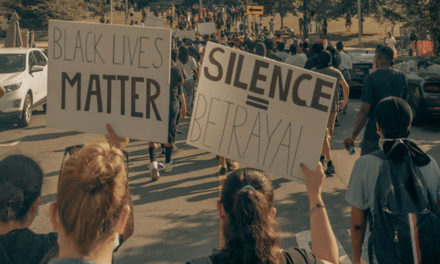Say you’ve decided to write about a phenom—someone deep into counterculture—a disrupter—someone beyond conventional thinking—someone who defies labels—someone who is oily, repulsive, spits on common folk, and is a sexual predator.
In today’s abundance of such people, who might be on your list of repulsive phenoms? It can’t the bread-and-butter version of phenom—as Madame Merriam Webster defines them—persons of phenomenal ability or promise. Those are good phenoms; you’re talking repulsive phenoms, as in phenomenally rapacious, raunchy, rebarbative, and recalcitrant. You want to write about the A-holes of lowlife like Ye, Jeffery Epstein, Harvey Weinstein, Jerry Sandusky, Mike Tyson, and R. Kelly.
Yes you can write about those repulsive phenoms, if what you say is true, reliably sourced, not defamatory, and true. You’ll notice I included truth twice to make my point. Truth, in metaphysics and the philosophy of language is “the property of sentences, assertions, beliefs, thoughts, or propositions that are said, in ordinary discourse, to agree with the facts.”[1]
Defamation, the writer’s plague, is more complicated than simple truth. Defamation, in legal terms, is a statement that injures a third party’s reputation. The tort of defamation includes both libel (written statements) and slander (spoken statements). State common law and statutory law governs defamation actions, and each state varies in their standards for defamation and potential damages. Defamation is a tricky area of law as the lines between stating an opinion versus a fact can be vague, and defamation tests the limits of the first amendment freedoms of speech and press.[2] Believe it or not, you can write the truth but still get sued for defamation.
When identifying lowlifes in our writing we face two other risks, aside from defamation—invasion of privacy, and misappropriation of the right of publicity. The core legal and ethical issues stem from writing about real people. Journalists do that all the time—it’s legal and ethical when it’s truthful and not an invasion of privacy.
“Even if you publish the truth, you may still be sued for invasion of privacy if you disclose private information that is embarrassing or unpleasant about an identifiable, living person and that is offensive to ordinary sensibilities and not of overriding public interest. The target must have a reasonable expectation of privacy. The disclosure must be more than embarrassing; it must harm a person’s personal and professional reputation. Typically, these cases involve incest, rape, abuse, or a serious disease or impairment. Sex videos have triggered a number of suits. Even if the information is highly offensive, courts often decide there is no legal liability if the information is of public interest. Public interest does not mean high-brow or intellectual. Gossip, smut, and just about anything about celebrities is of public interest.”[3]
Writing memoir or biography can be risky. Both genres pose a small risk because what you say can upset friends, family, and foes by retelling a story in a way that not everyone remembers. Or repeating publicly something that others want kept private. We write ugly stories embarrassing, not to us but to an unknown reader or to the reader’s lawyer. Some of us write to start discussions, or remind others of facts, people, or events that get lost. We might write to engage and argue for systemic change. Doing so must be done by tiptoeing through legal minefields; defamation, invasion of privacy, and intentional infliction of emotional distress.[4]
Online publication carries its own legal risks if someone’s reputation is harmed. Generally, we don’t face legal risk by stating opinions, even if they are harsh or critical. One example is the False Light doctrine. It’s a second cousin to defamation. It is using untrue implications rather than directly false statements. For instance, writing about a sex offender by using photos of descriptions that are inaccurate could give rise to a false light claim, even if the article and photo caption never make the explicit false statement that would support a defamation claim.[5]
The ethics of writing about phenoms are parallel with the legal risks of it. Just because you can write about a repulsive phenom doesn’t mean you should. The more marginalized, unempowered, poor and uneducated the subject, the less likely they are to give valid consent to being included in what we write and publish. A widely accepted test is to be real, but fair. Honest, but not hurtful. Entertaining, but not mean.[6]
[1] https://www.britannica.com/topic/truth-philosophy-and-logic
[2] https://www.law.cornell.edu/wex/defamation
[3] https://helensedwick.com/how-to-use-real-people-in-your-writing/
[4] https://creativelawcenter.com/register/memoir-how-to-minimize-risk/
[5] http://www.dmlp.org/BOOK/EXPORT/HTML/1809
[6] https://writingcooperative.com/writing-about-real-people-b105bf8fd255

I am an author and a part-time lawyer with a focus on ethics and professional discipline. I teach creative writing and ethics to law students at Arizona State University. Read my bio.
If you have an important story you want told, you can commission me to write it for you. Learn how.






 I am an author and a part-time lawyer with a focus on ethics and professional discipline. I teach creative writing and ethics to law students at Arizona State University.
I am an author and a part-time lawyer with a focus on ethics and professional discipline. I teach creative writing and ethics to law students at Arizona State University.  My latest novel is Hide & Be.
My latest novel is Hide & Be.  If you have an important story you want told, you can commission me to write it for you.
If you have an important story you want told, you can commission me to write it for you.